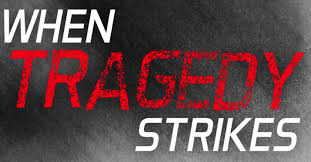The new normal of violent shootings and terror tactics by hate groups and individuals here at home shouldn’t be something you shy away from talking about with your teen.
It seems impossible to explain aggravated assault, domestic terrorism, and murder over and over again to our children, who may not understand why such events keep happening or why people would behave that way in the first place. Many children and teens fear that they will be the next target, and that the lockdown drills at school simply reinforce the idea that danger is around the corner, even when it never comes.
For teenagers dealing with addiction recovery, news of such events may trigger the need for release and create a road to relapse. Those in therapyor on medication for mental health issues may be triggered into an episode they can’t get out of.

Just Turn It Off
In a regular news cycle, you and your teen may hear about the same story or a journalistic angle or opinion about that story more than enough, including classroom lectures, texts, posts, news reports, and memes. Chances are that we are often hyperaware of every tragedy, shooting, and bombing in ways that make us paranoid, cautious when we do not need to be, and self-reflective.
Give your teen–and yourself–a refuge from the media onslaught by turning off the news and focusing on something else for the night.
Make sure their phone–and yours–isn’t always buzzing about a late-breaking story or a breaking news piece. While this may seem like an overcautious move it’s better to take a break and connect in different ways than over such tragic happenings.
The Kids Are Not the Cause, and Shouldn’t Feel Stigmatized
Children and teenagers who deal with mental illness may think they will be drawn into a world where they themselves will carry out violent acts, or that the next tragedy will find them at school or a house of worship.
Many kids and adults feel this way anyway in our current climate of constant mass shootings and overdose deaths, but those suffering from anxiety and depression on a daily basis can be affected all the more.
According to a report in the American Journal of Public Health, “less than 5 percent of 120,000 gun-related killings in America” over a decade were committed by people with a diagnosed mental illness. This fact can help the public understand that we are not bombarded with violence because of those with mental illness but rather that those who are working on mental health issues are part of the general population and shouldn’t be thought of as different.
Knowing the triggers of a mental health episode will empower parents to do as they see fit and protect their children from oversaturation of media. Let them know that they are safe and that you and their teachers and counselors will protect them.
We all become a bit numb to the constant barrage of violent news stories, or the focus and narrative of just one awful incident. Whatever the case, let your teenager know that just because they an event is broadcast over and over they don ‘t have to focus on it, and that there are more wonderful stories out there that never get reported.


Let Them Grieve in Their Own Way
Whether it’s the news of another violent act close to home or far away, we all feel a sense of grief and loss when it comes to thinking about our safety.
If your teen’s emotional state is easily affected, then the best thing is to talk with them about how to think and grieve, because they need to own their feelings, just like adults. Some griefs are short-lived, but we all can carry trauma and the feelings of trauma with us the rest of our lives, whether or not we’re directly connected to the incident.
There is no wrong way to grieve, as long as it’s safe and healthy. You and your teen may want to do something for those in crisis like a fundraiser, protest, or something quiet and personal like writing letters to victims’ families or civic leaders. Parents can often take the lead on this process and help empower their children to do what they feel is right for them and the issue at hand.
Focus on the Future
Often tragedies leave one with a sense of powerlessness and hopelessness. The feeling that an issue is very real without a means to counter it can be overwhelming, and it can leave teen with a negative outlook and bleak perspective on the future.


It is for this reason that helping your teen focus on the future and, most important, how they can contribute to a better future can go a long way to empowering them and giving them a sense of control on the outcomes of their own futures.
Volunteer work, charity, advocacy, and even attendance at supportive events are small (and potentially big) ways in which they can contribute to the positive change necessary to develop a better future. There is no greater gift than the power to create a future that is worth living for.






